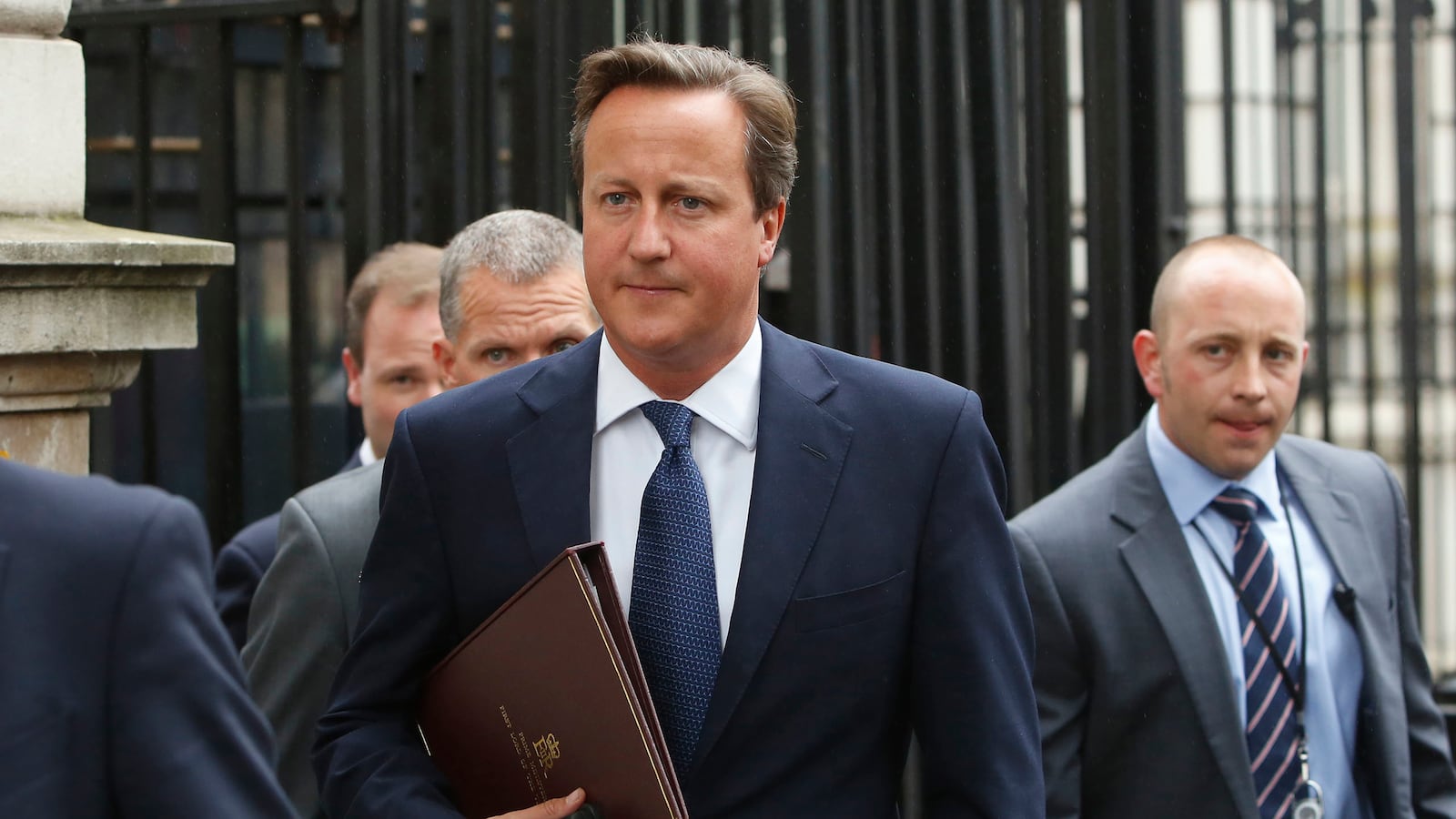When it comes to anti-terrorist legislation, the United States and United Kingdom march pretty much to the same tune. We share the same intelligence sources, we know we have the same enemies domestic and foreign. Even though we have different judicial systems, traditions, and interpretations of the rights of the individual versus the rights of the state, we have ended up with much the same fortress mentality in an effort to keep ourselves safe.
Our enemies in the wide universe of terrorism have one thing in common: They don’t like free and open societies. And the danger of all statutory responses to violent people is that they end up replicating some of the characteristics of the people they are aimed at.
That was the shadow behind David Cameron’s response Monday in Parliament to the ISIS threat: Was it one more step in the erosion of individual freedoms that has taken place since 9/11 both in the United Kingdom and United States? Or was it a further stage in a mutually agreed transaction between civil rights and national security?
The war against terrorism is an asymmetrical war. The security of the many can be destroyed by the actions of the few. We have seen how a handful of guys armed with nothing more than box cutters can radically alter our lives forever.
And so it is right to examine Cameron’s use of the term “forensic focus” to justify the measures he took, which include giving police the power to confiscate passports of suspected terrorists returning to the United Kingdom. The first line of defense against terrorists is not at the borders. It’s intelligence gathering with forensic purpose.
Like U.S. officials, Cameron is painting a picture of a subtle and adaptive enemy, one able to brainwash our own citizens into leaving the country to become zealots in what seems like a medieval killing machine—and, even scarier, creating sleeper cells at home from which they will one day spring to kill.
We thought for a while that we had purchased, at great expense and with even greater forbearance, the wits and means to find and deal with these threats. Together the United States and United Kingdom spent billions building the most pervasive (and invasive) surveillance institutions ever seen. However, it now seems that as these vast intelligence mills suck up thousands of trivial emails and phone calls every minute, they have no means of distinguishing the dangers from the drivel.
And once more there has been a sea change in the perception of terrorism. The deep, visceral repugnance that coursed through our nerves at the sight of an executioner about to behead James Foley has had exceptional effect. As Cameron said, the whole world “has been sickened and shocked.” But it may also cause us to be too tolerant of further extensions of state power in the name of security.
I believe that Cameron was aware of this danger when he spoke Monday, as was the leader of the opposition Labour Party, Ed Miliband. Cameron said he was rejecting calls for “sweeping and blanket” new laws. Miliband said he would offer Cameron broad support.
The main thrust of the new powers that Cameron wants is to strip a proven terrorist of British citizenship. That can already be done in a case where a person has dual citizenship, but Cameron wants someone who is already a citizen to forfeit that citizenship and, in effect, become stateless. Technically, making somebody stateless is contrary to international law. The person will be an outcast as well as an outlaw.
The crunch here would be how you define a person as a terrorist warranting such a draconian step. People in the United Kingdom can already have their passports removed if they are found acting in a way “not conducive to the public good,” but the slipperiness of that phrase has been hard to enforce in the courts.
And in dealing with homegrown terrorists, the language can become a little Orwellian. Miliband agreed with Cameron that a “mandatory and comprehensive program of de-radicalization” was needed. No mention was made of why within British society it was possible for young men to become radicalized to the extent that they were potential beheaders.
It’s hard to see how measures like this can be carried out without a high degree of racial profiling. Cameron wants legislation to provide the police with temporary power to seize a passport at the border, “during which they will be able to investigate the individual concerned.” This is, whatever you choose to call it, profiling.
Among the advocates of the kind of “sweeping and blanket” laws that Cameron rejected are members of a rising political party, the United Kingdom Independence Party (UKIP), which although disavowing a rabid anti-immigrant spirit is fueled by it. Admittedly UKIP’s bogeymen have tended to be plumbers from Romania, but there is also an audible undercurrent in pub talk of “If they don’t want to live by our laws and our standards, they should be packed off to where they came from.”
Given the dark rumble of that demotic, Cameron and Miliband are probably going to be able to hold the center against the lunatic fringe, while at the same time giving the police more effective power to act on well-founded suspicion rather than waiting for a complete dossier proving evil intent, by which time it can sometimes be too late.
Since the London bombings of July 2005, the British people, like the citizens of the United States, have learned to live with a more powerful state that is on daily alert for deadly threats and which they expect to be as competent in its actions as it is intrusive in the course of their travels. If that state is to be further armed with new laws, its competence will be even more on the line.





